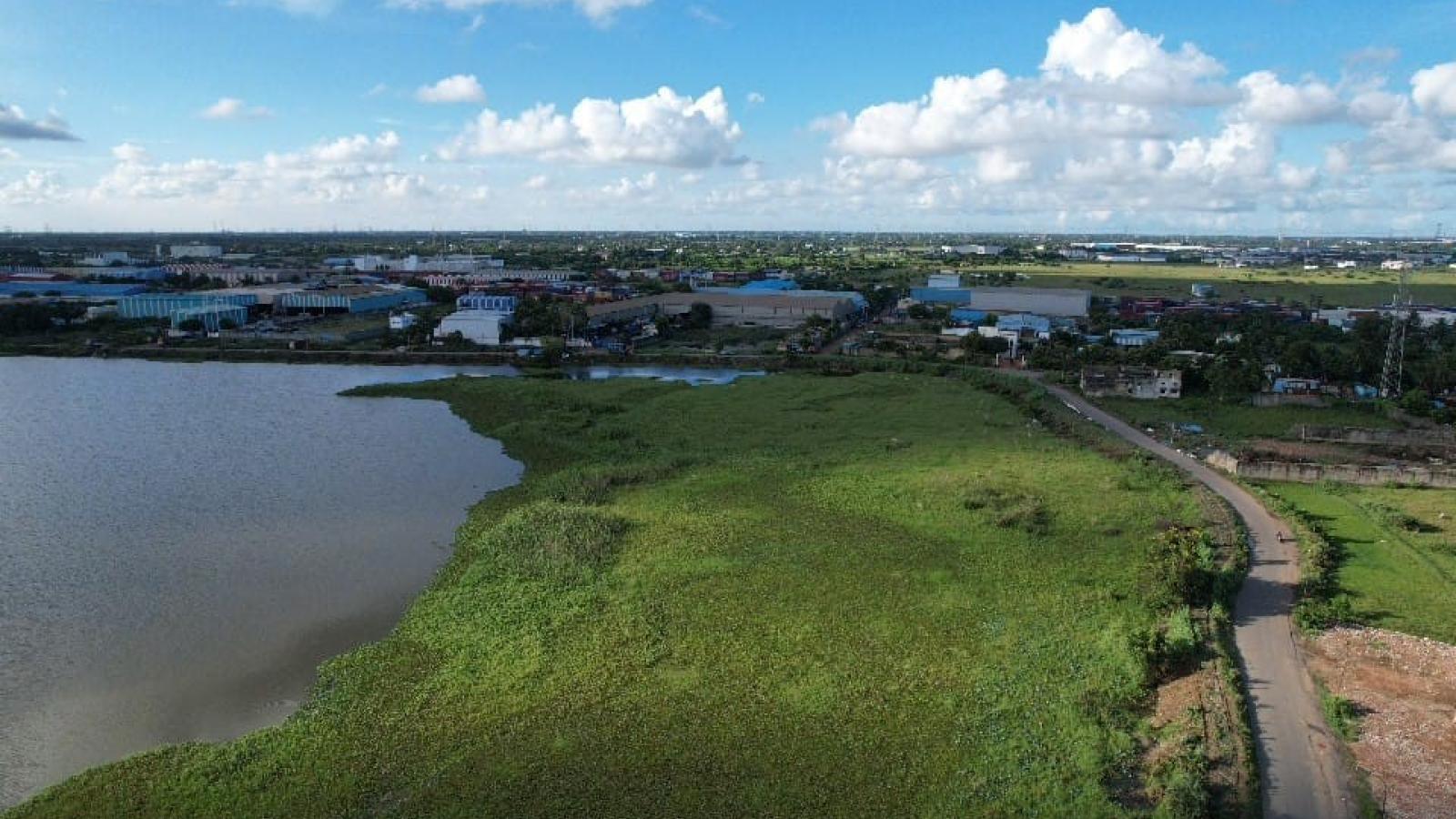Webinar
Building Capacity to Assess Urban Climate Hazards and Tackle Heat and Flooding in Cities: A Three-Part Capacity Building Training Webinar Series
This three-part webinar series offered a comprehensive training on how nature-based solutions and tools like the Climate Hazard Vulnerability Assessment framework can help cities build resilience to risks like extreme heat and flooding.
Cities around the world are reeling from the impacts of climate change, from heat to flooding. As threats intensify, nature-based solutions (NBS) can play a role in mitigating these risks by enhancing urban resilience to climate change. For example, green roofs, urban forests, and permeable pavements help reduce heat and manage stormwater, which can alleviate flooding. Tools like the Climate Hazard Vulnerability Assessment (CHVA) framework can help to identify the most vulnerable areas in a city, prioritize interventions, and ensure that adaptation measures are targeted effectively. By utilizing NBS and leveraging tools such as the CHVA framework cities can make informed decisions on where to implement NBS and how to prioritize other strategies to reduce exposure to heat, flooding, and climate hazards, fostering more livable and resilient urban spaces.
Co-organized by WRI India, UrbanShift, and Cities4Forests, this three-part capacity building training webinar series is designed to build capacity of city officials to conduct vulnerability assessments and implement nature-based approaches to enhance climate resilience in cities. The three webinars will focus on (1) an introduction to the Climate Hazard Vulnerability Assessment (CHVA) framework to prioritize resilience actions in cities, (2) nature-based solutions to tackle extreme heat in cities, and (3) nature-based solutions to mitigate urban flooding. City government officials from global South cities, national government officials with urban development mandates and other urban practitioners were encouraged to attend and advised to participate in all three webinars for a comprehensive learning experience. The webinars were conducted in English and simultaneous interpretation was offered in French and Bahasa Indonesia.
Webinar 1: An Introduction to the ‘Climate Hazard Vulnerability Assessment’ Framework to Prioritize Resilience Actions in Cities
Date: Wednesday 5 February 2025
Time: 9:30-10:45 am Accra / 10:30-11:45 am Bonn / 12:30-1:45 pm Nairobi / 3:00-4:15 pm India / 4:30-5:45 pm Jakarta
Vulnerability assessments help assess the extent of climate vulnerability based on the three lenses: exposure, sensitivity, and adaptive capacity. By conducting a vulnerability assessment, cities can identify areas, communities and critical infrastructure that are most vulnerable to climate change induced hazards. This helps city authorities plan adaptation and risk mitigation strategies accordingly. This webinar also introduced participants to the concept of ‘differential vulnerability’, sharing data sources, templates, tools and approaches to help cities meet the needs of those who are socially, economically, and politically most vulnerable to climate hazards.
WATCH RECORDING
VIEW SLIDES
Speakers
-
John-Rob Pool, Senior Manager, UrbanShift & Nature-based Urban Development, Ross Center for Sustainable Cities, World Resources Institute
-
Deepti Talpade, Program Lead, Urban Development and Resilience, Cities, Program, WRI India
-
Avni Agarwal, Program Manager, Urban Development, Cities Program, WRI India
-
Bhanu Khanna, Program Manager, Geo Analytics, Sustainable Cities and Transport, WRI India
Webinar 2: Nature-based Solutions to Tackle Urban Heat in Cities
Date: Wednesday 5 March 2025
Time: 9:30-10:45 am Accra / 10:30-11:45 am Bonn / 12:30-1:45 pm Nairobi / 3:00-4:15 pm India / 4:30-5:45 pm Jakarta
Urban heat is a growing existential challenge in cities around the world. Rapid urbanisation has led to increased impervious surfaces and loss of green cover that exacerbates urban heat and manifests in additional challenges such as increased stormwater runoff and biodiversity loss. Nature-based solutions, in the form of both blue and green infrastructure are increasingly being used by cities as innovative, adaptable and low-cost approaches with multiple additional co-benefits that can build resilience to urban heat. This webinar highlighted how nature-based solutions are most effective when designed and implemented with local communities, using evidence-based and data-driven technological approaches. It covered methods to identify heat hotspots and challenges in cities, case studies on nature-based solutions for heat resilience across different urban forms, and long-term interventions, policies and plans that can be adopted at a city-scale.
WATCH RECORDING
VIEW SLIDES
Speakers
-
Hellen Wanjohi-Opil, Climate and Engagement Lead, Cities Program, WRI Africa
-
Lubaina Rangwala, Program Head, Urban Development, Cities Program, WRI India
-
Lutske Newton, Director of Climate Change Adaptation and Resilience, City of Tshwane
-
Deepti Talpade, Program Lead, Urban Development and Resilience, Cities, Program, WRI India
Webinar 3: Nature-based Solutions to Mitigate Flooding and Stormwater Risks in Cities
Date: Wednesday 26 March 2025
Time: 9:30-10:45 am Accra / 10:30-11:45 am Bonn / 12:30-1:45 pm Nairobi / 3:00-4:15 pm India / 4:30-5:45 pm Jakarta
Urban floods are one of the biggest climate risks for growing urban centres. Impacts of flood risk include loss of life and property, increased health risks and damage to infrastructure. Rapid urbanisation has led to increased impervious surfaces and loss of green cover that result in increased stormwater runoff and flooding. On the other hand, drinking water shortages during dry months have become more frequent and severe. To make our cities more resilient, we need actions that holistically target water security in both wet and dry months. Blue-green infrastructure solutions have emerged as innovative, low-cost approaches with multiple co-benefits. These, when co-created with the most vulnerable communities, using scientific, data and evidence driven approaches and technologies, are most effective, and this webinar explored how to effectively implement them.
WATCH RECORDING
VIEW SLIDES
Speakers
-
Dr Priya Narayanan, Senior Program Manager, Urban Development, Cities Program, WRI India
-
Mukta Salunkhe, Senior Program Associate, Urban Development, Cities program, WRI India
-
Sahana Goswami, Senior Program Manager, Urban Water Resilience, Cities Program, WRI India
-
Dr Nisha Priya Mani, Sustainable Cities Specialist, Greater Chennai Corporation & Asian Development Bank
-
Mesalin Maimbu, Head of Sub-divison of Environmental Pollution, Jayapura Environmental Agency, Indonesia
-
Hadibandhu Behera, Advisor to the Water Resource Unit, Orissa Water Supply & Sewerage Board, India
-
Natasha Naidu, Manager: Regional Stormwater Planning, Johannesburg Roads Agency, City of Johannesburg, South Africa
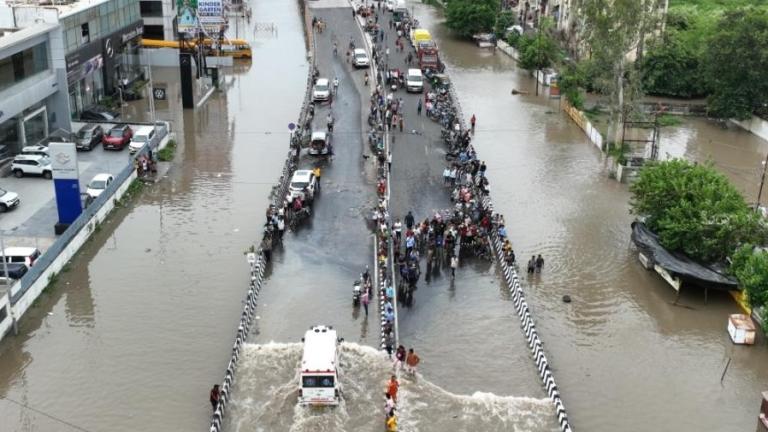
Building City Capacities for Urban Resilience: Three Learning Modules to Tackle Climate Risks
These self-study courses guide city officials through best practices for assessing climate risks and mitigating flood and heat hazards.
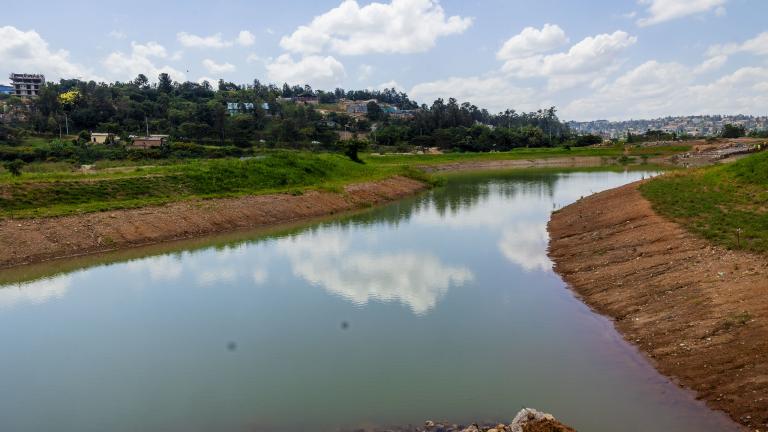
Breathing New Life into 5 Kigali Wetlands to Enhance Climate Resilience and Quality of Life
These formerly degraded sites will soon welcome visitors for recreational and educational opportunities—while alleviating flood challenges for the city.
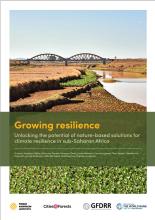
Growing Resilience: Unlocking the Potential of Nature-Based Solutions for Climate Resilience in Sub-Saharan Africa
By analyzing nearly 300 nature-based solutions projects across sub-Saharan Africa from 2012 to 2023, this report offers a comprehensive overview of NBS in the region and provides recommendations to scale NBS projects for climate resilience.
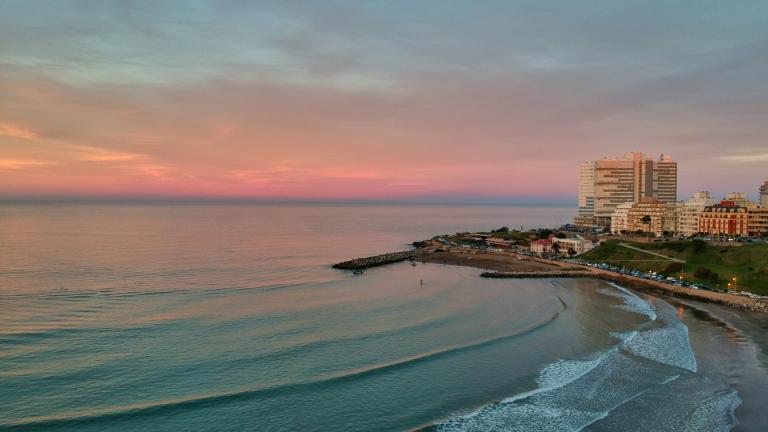
Visions of Sustainability in Mar del Plata and Mar Chiquita
Along the coast of Argentina, two ambitious plans are showing how participatory design and nature-based solutions can lay the groundwork for inclusive, climate-resilient outcomes.
